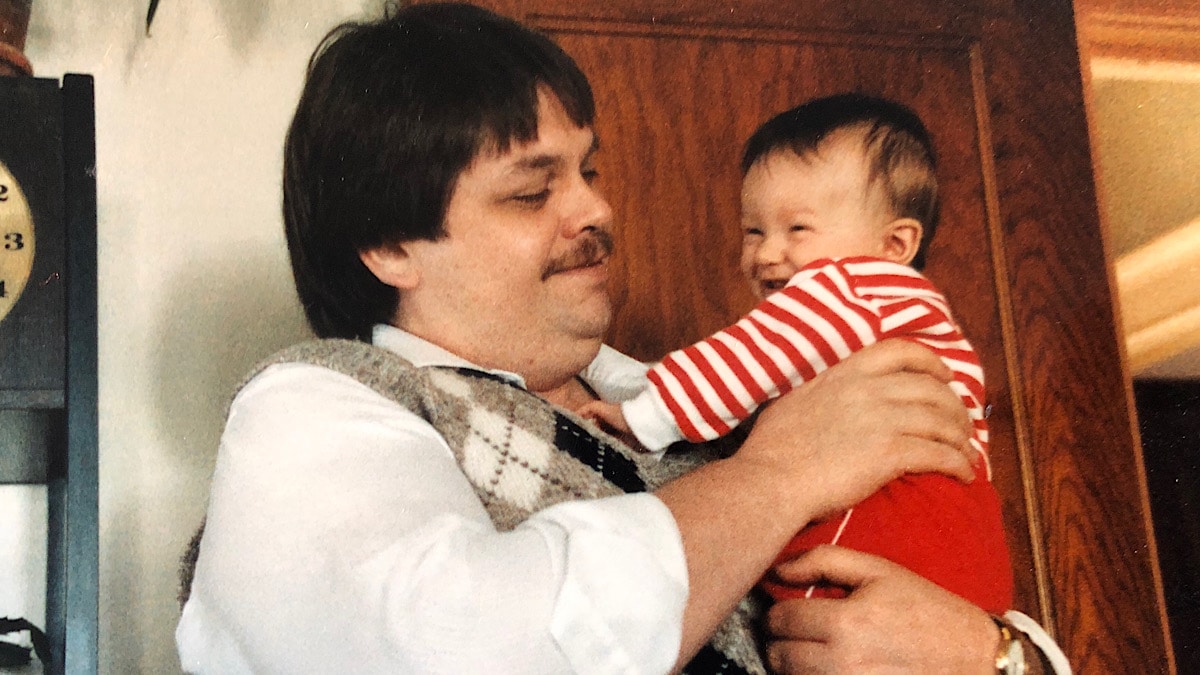Excerpt: How to deal with kids after a confrontation—a strategy on separating actions from identity from Things No One Else Can Teach Us [Book].
The following is an excerpt from Things No One Else Can Teach Us by Humble the Poet.
In it, Humble shares an insightful lesson he learned while watching another teacher deal with a challenging student. The power in this excerpt is in its universal application.
We’re all going to have to deal with challenging people—of all ages. And the strategy shared can be used for everyone from young kids, to teens, to your peers, to yourself. How does it work?
You separate the person from their actions—you comment/ condemn the behavior, NOT their identity. I’ll turn it over to Humble to elaborate. I hope this finds you well and I hope you’re able to apply this in a beneficial way. All my best! ~ Matt
Enter Humble The Poet:
I had a student who was on an IEP (Individual Education Plan) to address his behavioral issues, because they were negatively affecting him academically. To say it bluntly, this kid was acting wild, disturbing the class any chance he got, and threatening violence toward students and teachers. He was often removed from class to give the other students an opportunity to learn in a safe environment, but, the goal was to modify a program for him, not isolate him from everyone else.
A counselor who worked with the kid a few days a week developed a red card system. If the student felt angry and was about to have an episode, he held up a red card, and the teacher would grand him a pass to go outside and cool off. Likewise, the teacher had a red card, so if he kid was getting out of hand, the teacher held the card up, signaling the kid to go walk it off.
It was a noble strategy, but the first time I held up the red card, after trying to get the kid to stop disturbing the class, he told me to f*ck off and that his father would come kick my ass. I stood there waving that red card like a World Cup referee, but the kid was too upset to honor the agreement.
When his homeroom teacher found out, that teacher addressed him in a way I hadn’t seen before. He sat the kid down and said: “I like you, man, but I don’t like your choices. I need you to leave those choices at home, or better yet, throw them away, because those choices are hurting a great guy.”
The homeroom teacher successfully separated the student from his actions, something counterintuitive in a world where we’re so quick to label. He wouldn’t call the kid a bully; rather, he addressed the bullying as a choice the kid could stop anytime. This allowed the kid not to feel attacked; the decisions he made were isolated, and he was challenged to rethink his choices.
I began to use that technique on my students, and eventually on myself.
I’m not an a-hole, but I can choose to be an a-hole, and when I’m an a-hole, I can choose to let those actions go and make things better. This perspective is more fruitful than simply saying, “I’m an a-hole, this is who I am and who I’ll be forever.”
We have the opportunity to reverse the momentum of our behavior at any moment. I’m not saying this will be easy, but just taking a deep look and recognizing patterns of unpleasant behavior in yourself is an amazing first step that so few people can or want to take. We can separate ourselves from the poor choices we make and start fresh with better decisions, no self-loathing required.
Afterword (By Matt):
As a Martial Arts Instructor, I love this strategy. By separating individual acts from the person as a whole, you’re carefully directing the thoughts of the student who is having challenges from identifying themself as, “the challenging student,” to, “a student who is having some challenges.”
The difference between those two trains of thought is tremendous. A person who believes themself to be “the trouble-maker,” or “the class clown,” or “the bully,” will continue to act in alignment with those beliefs—how could they not? You act in alignment with who you believe yourself to be.
But when you tell a student that you, “like them” and that you think they’re a, “great guy” and that you just want them to change their choices to realign themselves with who you believe them to be—now you’re drastically changing the conversation and that student’s internal dialog.
Now it’s temporary behavior rather than permanent, unchangeable behavior. Because the reality is, when you can show people—students and peers alike—that they do, indeed, have the power to change their behaviors (and resultantly change their identities), then you give them one of the most fundamental tools they need to change and direct their lives.
Without that belief, which is sometimes innate, but many times instilled from the feedback of peers, role models, and parents, then they will forever be a victim to their circumstances. Give our young ones their power and show them how to control it and direct it. Do the same for yourself and your peers. You could very well help shape the course of somebody’s life.
If you enjoyed this excerpt from Things No One Else Can Teach Us by Humble the Poet, then you’ll surely enjoy reading his book in full. It comes warmly recommended:
Read Next:
NEW In The Shop: Don’t Let The Tame Ones Tell You How To Live [Poster]
Why We ♥ It: Some of the best advice I (Matt here) ever got was: don’t take life advice from people who aren’t living a life you want to live and don’t take criticism from people you wouldn’t go to for advice. I created this poster to act as a reminder to listen more closely to our role models and less closely to our critics, trolls, and tamed-comfort-zone-hugger acquaintances. It’s also a perfect gift for the outdoor adventurer, travel enthusiast, or solo explorer (or soon to be). Available in print or digital download. 👇🏼
...Want to advertise your book, product, or service? Send inquiries to matt@movemequotes.com.

Written by Matt Hogan
Founder of MoveMe Quotes. On a mission to help busy people do inner work—for better mental health; for healing; for personal growth. Find me on Twitter / IG / Medium. I also share daily insights here. 🌱
It has taken me 1,000’s of hours to build this free library for you. If it has helped you, you can support my continued effort here. ☕️


![To My Daughter. [Excerpt]](https://movemequotes.com/wp-content/uploads/2023/06/Daughter.jpeg)




